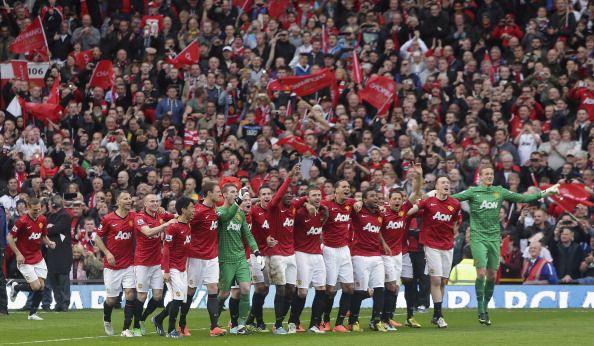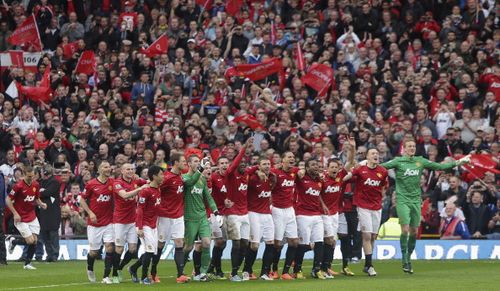
Of Fans and Fandom: A Case of Unique Reward Points

Manchester United – Fan favourite
Fans are a different breed of humankind. They take pride and revel in their sporting idols’ achievements as if these were their own just as they despair and mourn over losses and defeats. It’s a life of self-induced masochism, yet one that’s immensely satisfying in spite of the tumult that invariably surrounds the life of sporting professionals.
There’s no one particular reason as to why people turn fans. There aren’t any rational explanations except to say that emotionality plays a huge role in converting people to ardent followers. There is thus no definite categorisation to the terminology with love, addiction and an associative desire being equal contributors to the element of definition. One doesn’t consciously think about being a fan, it’s about things simply falling into place leaving no chaos behind.
An allegiance that’s given never to be returned back, being a fan is one of the truest forms of loyalty and love. True fans – foul-weather fans – never short-change their sporting idols no matter what the idols’ professional fortunes may reflect. Monetary motivation thus doesn’t come into the picture at all. One doesn’t then become a fan of Roger Federer thinking about receiving a hypothetical contribution from the legend for being his fan nor does one become a fan of Manchester United thinking about supposed returns in Euro for following the club.
Indeed, Roger Federer doesn’t pay his fans to watch him play nor does he sponsor their tickets and Arsenal doesn’t carry out special spending exercises to ensure that the most ardent of the club’s fans get a chance to watch the Red Devils in action. But, even if Tendulkar and United were to throw out feelers for any potential development like these, it would go on to constitute as an insult of the scores of people who have willingly followed these two giants, revered and venerated them, giving them the lion’s share of their hearts with no regrets.
Fans don’t care about the money they spend to watch their idols in action. The more pragmatic side of mind may argue about the money not being to put to recyclable use, but the emotional side presents a slew of arguments that completely silence the call of pragmatism. Even the most rational of laws and principles become exceptions to this influential tug of heart over the mind, bowing down to the superior domination of the former over the latter.
Like money, time too becomes a relative entity. Its significance is narrowed down to the exact hour, minute and second when the favourite comes out to play and for the entire duration of the match thereafter, with all other aspects of life thrown aside into the background. In moments like these, to be a fan is an incomparable heady, addictive feeling. With continuous altering between prodding the clock to go faster and begging it to go slow so as to prolong the savouring of the excitement for some more time.
And once the match’s all done, victory and glory achieved, the mental clock begins rewinding, injecting yet another dose of addictive boost to sustain the momentum and keep the anticipation going till the next match and possible next triumph and glory. In case of a loss, fans don’t really decide to give it all up but rally around, believing in the potency of their source of addiction and fortifying themselves on anticipation even more.
As time moves on, the passage of years and generations doesn’t reduce the fans’ addiction, but re-directs it towards the newer generation of sportsmen and athletes, though never in the same way. Associations with the domain of sports and sportsmen thus never end for the fans, but extend to the entirety of their lifespan. Statisticians pay witness to the achievements of sportsmen, but it is fans who pay homage to their idols by chronicling their professional lives through their lifelong association of fandom.
These are accomplishments of a different sort, that don’t get mentioned anywhere unless the zooming lens of the camera captures them. But fans don’t really come out in blazing support of their favourites waiting for the cameras to focus on them. They aren’t driven by the thrill of being potential celebrities nor are they driven by the desire to be the centre of attraction. They are content to be followers, to be simply led, in the wake of the successes of their idols.
Yet the balance of equation between fans and favourites stands on an equal footing without any lopsidedness to this seeming one-sided giving on the part of the fans. The acknowledgment by sportsmen about the contribution of fans to their continued existence in the sporting realm is the biggest reciprocation that fans receive. Roger Federer and Manchester United may not sponsor ticket money but they do sponsor the biggest wealth that multiplies the horde of their fan following. Appreciation and regards for their support that has always flowed and never ebbed, and shall continue to do so for as long as these sports continue to exist in an ever-changing, contrarian world.